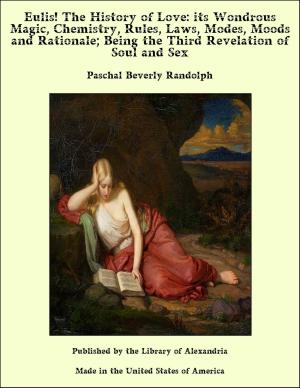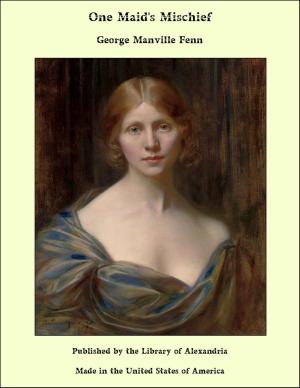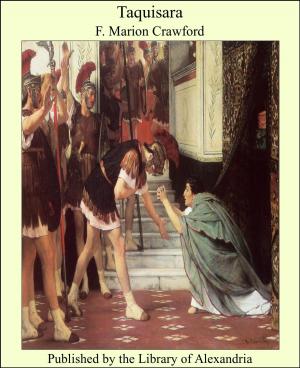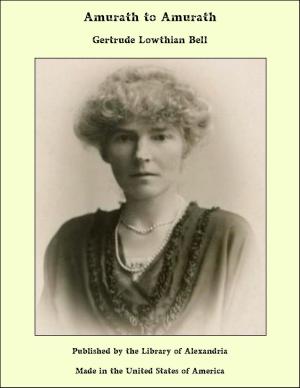The Nine of Hearts: A Novel
Nonfiction, Religion & Spirituality, New Age, History, Fiction & Literature| Author: | Benjamin Leopold Farjeon | ISBN: | 9781465610584 |
| Publisher: | Library of Alexandria | Publication: | March 8, 2015 |
| Imprint: | Language: | English |
| Author: | Benjamin Leopold Farjeon |
| ISBN: | 9781465610584 |
| Publisher: | Library of Alexandria |
| Publication: | March 8, 2015 |
| Imprint: | |
| Language: | English |
This morning, at the Central Criminal Court, Mr. Justice Fenmore resumed the trial of Edward Layton for the wilful murder of his wife, Agnes Layton, on the morning of the 26th of March, by the administration of poisonous narcotics in such quantities as to produce death. Extraordinary as was the excitement caused by yesterday's proceedings, the public interest in this mysterious murder was intensified by the strange decision arrived at by the prisoner on this the third day of his trial. The Attorney-general, Mr. J. Protheroe, Q.C., and Mr. Standing conducted the case on behalf of the Crown. The widely spread rumor that an episode of a startling character was impending, received confirmation immediately upon the entrance of the prisoner in the dock. He presented a care-worn appearance, and while the usual formalities were in progress, it was observed that he and his counsel (Mr. Bainbridge, Q.C.) were in earnest consultation, and it appeared as if the learned gentleman were endeavoring to overcome some resolution which the prisoner had formed. At the termination of this conversation Mr. Bainbridge, turning to the Bench, said, "I have to claim your lordship's indulgence for a statement which I find it necessary to make. It is in the remembrance of your lordship that on the first day of this trial the prisoner was undefended, being, as it appeared, resolutely determined to defend himself. Yesterday morning--that is, upon the second day of the trial--I informed your lordship that the prisoner had been prevailed upon by his friends to intrust his defence to me. Being satisfied in my own mind that nothing would occur to disturb this arrangement--which I venture to say was an advisable one--I did not feel called upon to mention that the prisoner's consent to accept legal aid was very reluctantly given. That this was so, however, is proved by what has since transpired. Both in writing and by word of mouth the prisoner now insists upon conducting his own case, and has distinctly informed me that he will not permit me to act for him. I am empowered to say that his decision is not in any sense personal to myself. It is simply, and regrettably, that he has resolved not to be defended or represented by counsel. In these circumstances I have no option but to place myself in your lordship's hands."
This morning, at the Central Criminal Court, Mr. Justice Fenmore resumed the trial of Edward Layton for the wilful murder of his wife, Agnes Layton, on the morning of the 26th of March, by the administration of poisonous narcotics in such quantities as to produce death. Extraordinary as was the excitement caused by yesterday's proceedings, the public interest in this mysterious murder was intensified by the strange decision arrived at by the prisoner on this the third day of his trial. The Attorney-general, Mr. J. Protheroe, Q.C., and Mr. Standing conducted the case on behalf of the Crown. The widely spread rumor that an episode of a startling character was impending, received confirmation immediately upon the entrance of the prisoner in the dock. He presented a care-worn appearance, and while the usual formalities were in progress, it was observed that he and his counsel (Mr. Bainbridge, Q.C.) were in earnest consultation, and it appeared as if the learned gentleman were endeavoring to overcome some resolution which the prisoner had formed. At the termination of this conversation Mr. Bainbridge, turning to the Bench, said, "I have to claim your lordship's indulgence for a statement which I find it necessary to make. It is in the remembrance of your lordship that on the first day of this trial the prisoner was undefended, being, as it appeared, resolutely determined to defend himself. Yesterday morning--that is, upon the second day of the trial--I informed your lordship that the prisoner had been prevailed upon by his friends to intrust his defence to me. Being satisfied in my own mind that nothing would occur to disturb this arrangement--which I venture to say was an advisable one--I did not feel called upon to mention that the prisoner's consent to accept legal aid was very reluctantly given. That this was so, however, is proved by what has since transpired. Both in writing and by word of mouth the prisoner now insists upon conducting his own case, and has distinctly informed me that he will not permit me to act for him. I am empowered to say that his decision is not in any sense personal to myself. It is simply, and regrettably, that he has resolved not to be defended or represented by counsel. In these circumstances I have no option but to place myself in your lordship's hands."















